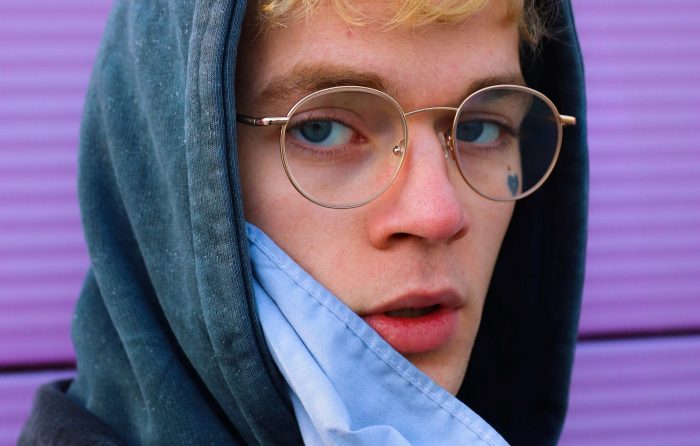Christmas Eve morning found me standing in line in a local seafood store.
I was picking up the last of the “seven fishes” for the Feast of the Seven Fishes that my son was preparing to honor his wife’s family’s tradition. Six down, one to go, I thought to myself as I perused the case and chose flounder.
I was relieved to see that everyone at the store was decked out in their masks—even if it hadn’t been in anyone’s plan when the year began to wear such “festive” attire. All except for one man who stood at least 20 feet from me (thank goodness) with his mask, not just below his nose as I had seen too many times before, but hanging around his neck as he laughed and talked loudly to a woman standing in front of him.
Had this been any other time in history, I would have smiled at his jocularity, but this is not any other time in history.
Stepping out of line, I began to say, “Sir, could you please…” when I was stopped by a young woman who held up her hand.
“Don’t,” she said. “You do what works for you. He does what works for him.” Even though she agreed with me, she thought it would be safer not to confront him. She may have been right, since he was a big dude who towered over my 5’4″ frame.
When I got to the counter, I asked the women working there if they could ask him to please put his mask over his mouth and nose. They both shrugged and shook their heads. I quickly finished my business and went on my way. No one else had approached this man whose choice may have affected anyone within his breathing space. When I got home, I wrote a letter to the owner. I have not heard back, more than a week later. One thing is certain: I won’t be returning there.
I take this virus seriously, since it has impacted the world in horrific ways. I follow the science, knowing it’s not a hoax. I have medical professional friends who tell me so, and I believe them. I know people on the front lines, and I pray for their safety every day.
One, a young nurse who I have known since she was born and whose mother is a longtime friend, was diagnosed early on. Blessedly, this single mother of four recovered and returned to work. I hear daily reports of people who were seemingly low risk who have succumbed. Age, socio-economic background, and lifestyle make no difference to this disease, although there is a higher incidence among people of color and Latinx origin. Worldwide studies also indicate that men are more prone to diagnosis and those in the older age demographic are more at risk.
I do what I can personally to reduce my risks, since I am 62 with a history of asthma, and having survived a heart attack in 2014 and pneumonia in 2018.
I am fortunate to be able to work from home, offering telehealth sessions to my psychotherapy clients. I have set my living room up as a makeshift gym and quit my gym membership for the time being. I venture out primarily to go to the supermarket, occasional doctor appointments, and to babysit my now 11-month-old grandson. My priority, beyond my own sustained life, is the safety of my son, daughter-in-law, and the little one.
I don’t feel a need to eat out, go to a movie, or gather with friends, although I do miss those activities. As a highly tactile person, I miss hugs. Prior to the restrictions, I organized “FREE HUGS” events that had me hugging likely thousands of people since 2014. I have hope that I will be able to do so again. I’m not sure when, since the longer this rages on, the less likely it is that it will be anytime soon.
How hard was it to avoid partying to ring in the New Year? Apparently, meeting immediate gratification needs was more important than social responsibility. The snarky part of me thinks that if the consequences of such actions only impacted those who were foolish enough to attend parties and worship events (one that drew 2,500 mostly unmasked people), and it wouldn’t spread to those who have been following safety protocol, then karma will have come to call.
I contemplate the psychosocial factors that go into the resistance that some have to take two simple actions to remediate this disease, if not totally obliterate it. Mask-wearing and physical distancing in combination have been shown to reduce the chances of contracting the virus.
The aforementioned maskless man was in close proximity to the woman he was talking to in the store. Although I don’t pretend to know what goes on in anyone’s mind when they make their decisions about mask-wearing or distancing, I know my own reasons that have to do with social responsibility.
Is it inconvenient to mask up? Sometimes. It’s a hell of a lot easier than being intubated. Although I have never been in that position, over the years, I have been on oxygen and it ain’t a picnic.
Is it difficult to be away from friends and family? Absolutely. Do I feel lonely at times, longing for the comfort of hugs? For sure. Harder still, would be losing loved ones. I know people who have, and their grief is mixed with rage—understandably so.
I consider the mandate that businesses are smoke-free and remember the “no shoes, no shirt, no service” rule in stores and restaurants. There was a time when people resisted wearing seatbelts, but now it is expected and the law. I have heard stories from some who work in service industries and have gotten pushback from customers when they were politely reminding them to put masks on or to cover both the mouth and nose.
An article entitled, “Researchers find correlation between consistent mask-wearing and improved wellbeing” was published on a site called News: Medical Life Science and indicates a higher incidence of mental well-being. (This is not meant to discount those who have survived trauma or abuse who feel panic when having their mouths and noses covered.)
I don’t think of this as virtue signaling, but rather, a call to action. I care about what goes on beyond my immediate circles. What I do affects you and what you do affects me.
There are some who adamantly declare that they won’t have their freedoms taken from them but if, God-forbid, they are infected, they will want medical care from those who wear masks all day long as part of their uniform.
A dear friend who I have known for close to 25 years contracted the virus in early April, as he estimates it. Ken Kaplan is an educator, children’s entertainer, and storyteller. He is a consultant, which makes him part of the gig economy, also brutally impacted by the pandemic.
At 73 and pre-diabetic, he is in the vulnerable age group. His recovery period was prolonged.
This is his take on the experience:
“It was mild initially and spiraled into something worse. I was never properly, officially diagnosed because I was too sick to go out and be tested and could not leave the apartment. It was a moderate case that didn’t require hospitalization. I had the classic symptoms of sore throat intermittently, a persistent terrible dry cough, and excessive fatigue. Fatigue was the worst. Ten times stronger than with the flu. I felt like a python was squeezing the air out of me. It went on for a month and a half in its acute stage.
It took an exceptionally long time to get over. I couldn’t do a six to eight hour job. Docs suggested walking, but I couldn’t walk a block or so without getting exhausted. The cough wouldn’t stop. I might have had to go to the hospital except for two things—immune builders/supplements and the use of energy medicine. I had a crystal healing bed session and Reiki.“
(This was Ken’s experience and not an endorsement of any particular treatment modality or offering medical advice.)
Kaplan continues,
“People who dismiss it don’t have a feeling of how overpowering it can be. I am very angry at people who dismiss it and deride it. Not just Trump voters or conservatives, but new age spiritual people and conspiracy theorists. They seem blind to their anti-authoritarian and anti-science stance, that they viciously attack well-meaning medical experts.
They fought and protested against PPE and distancing. They said it was no worse than the flu. They rejected the data that was put in front of them. It feels like an extremely selfish expression of self-privilege and white privilege. I do not understand the lack of empathy, especially to those of color who have been hit harder than whites by this. Some people have no access to fresh food. Cultural circumstances make them not be able to afford supplements. Nursing home residents and, as I mentioned, people of color are most strongly impacted.
And what about front-line health care workers—where is the empathy and support for them? Many of my friends claim to be loving and dedicated to ‘oneness of all,’ but this just seems to be flat out contradictory to those values. I just heard how bad it is in California, which made me sick to my stomach and broke my heart. It is a result of the lack of support from the federal government because of Trump’s malfeasance. He has created genocide in America and the Republican governors enabled him. I knew it was going to hit America hard.”
Kaplan says,
“The Defense Production Act could have had the many industries make respirators and PPE available. Trump could have unlocked federal money and power and role-modeled behavior. It’s clear to me that people are suffering economically because they have to go to work to support themselves and become more vulnerable. Other countries support their citizens…”
He expresses his thoughts about the vaccine,
“So many do not understand the science how vaccines create herd immunity so the virus has no hosts to attach it to. It is not a ‘choice.’ Widespread resistance to vaccines will cripple the economy and [continue to] cause severe illness and death, taxing the medical system, which will leave continual pockets or ‘hot spots,’ seriously if not permanently impeding any return to full functionality since COVID-19 will continually surge in regions and be a danger elsewhere. I eventually believe it will be against the law not to be vaccinated, as it now is in other countries, since it is that severe a public health menace. Like seat belts—people went to war against seat belts.”
He acknowledges a paradox in his own life,
“Conversely, someone who came to my aid, who is personally generous and loyal, buys into the conspiracy theories more than most. Leave space for compassion for everyone. He did shopping for me and paid for some of what I needed. It’s hard to put these things together.”
Kaplan concludes:
“There is a piece of me that is grateful to the virus. On the human level, we are in the midst of a political and medical atrocity and it is impossible not to be impacted. It is an un-layering of a lot of issues that are calcified. It helps me to get closer to core issues to resolve them.”
While COVID-19 is a medical virus, the virus of selfishness is a companion to it that enables it to strengthen. One remedy is a cocktail of kindness, caring, and empathy, knowing that each of us has an impact on the well-being of the world.











Read 2 comments and reply